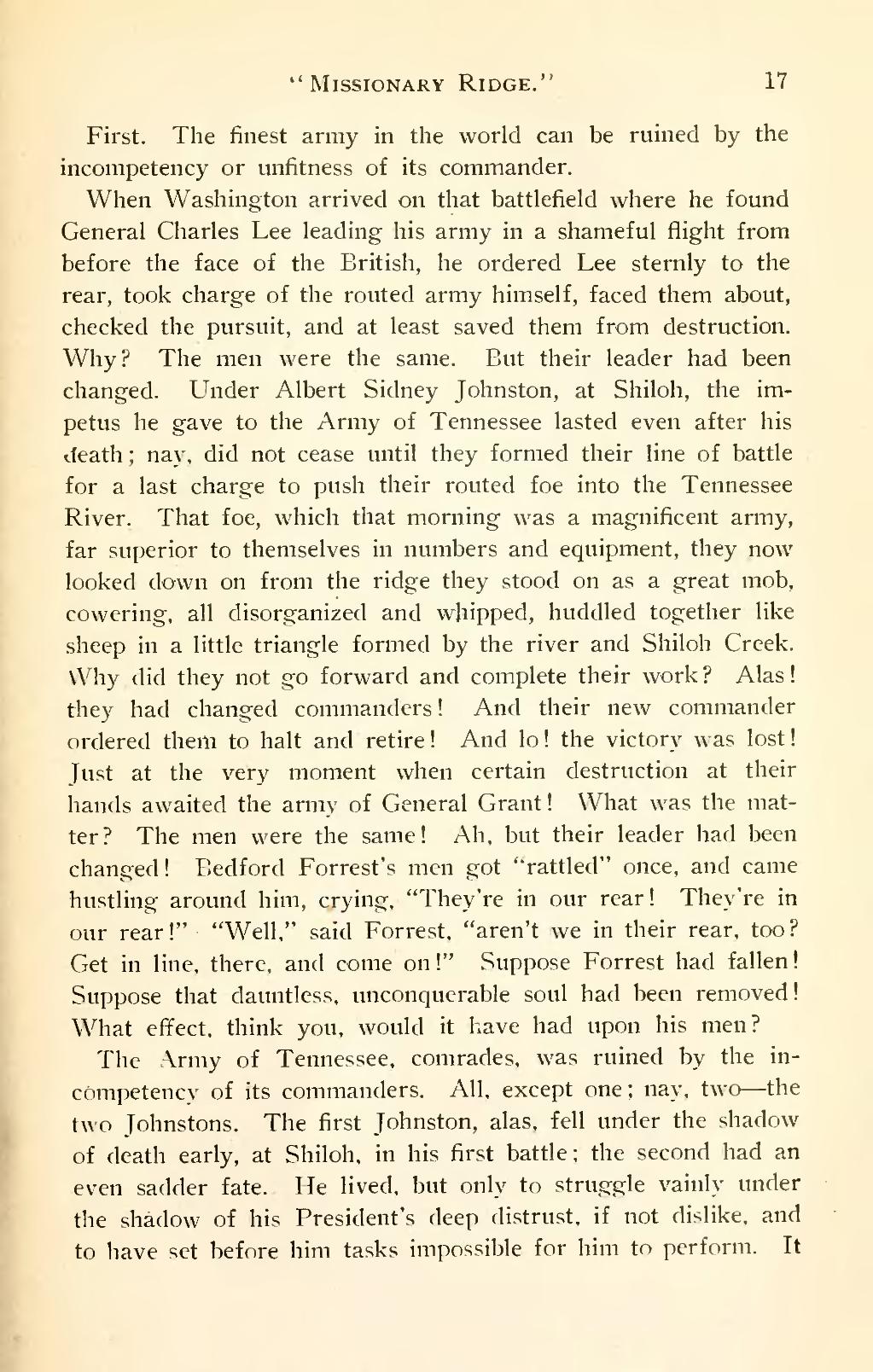"Missionary Ridge." 17
First. The finest army in the world can be ruined by the incompetency or unfitness of its commander.
When Washington arrived on that battlefield where he found General Charles Lee leading his army in a shameful flight from before the face of the British, he ordered Lee sternly to the rear, took charge of the routed army himself, faced them about, checked the pursuit, and at least saved them from destruction. Why? The men were the same. But their leader had been changed. Under Albert Sidney Johnston, at Shiloh, the im- petus he gave to the Army of Tennessee lasted even after his death ; nay, did not cease until they formed their line of battle for a last charge to push their routed foe into the Tennessee River. That foe, which that morning was a magnificent army, far superior to themselves in numbers and equipment, they now looked down on from the ridge they stood on as a great mob, cowering, all disorganized and whipped, huddled together like sheep in a little triangle formed by the river and Shiloh Creek. \Vhy did they not go forward and complete their work? Alas! they had changed commanders ! And their new commander ordered them to halt and retire ! And lo ! the victory was lost! Just at the very moment when certain destruction at their hands awaited the army of General Grant ! What was the mat- ter? The men were the same! Ah, but their leader had been changed ! Bedford Forrest's men got "rattled" once, and came hustling around him, crying, 'They're in our rear! They're in our rear!" "Well," said Forrest, "aren't we in their rear, too? Get in line, there, and come on!" Suppose Forrest had fallen! Suppose that dauntless, unconquerable soul had been removed! What effect, think you, would it have had upon his men?
The Army of Tennessee, comrades, was ruined by the in- competency of its commanders. All, except one ; nay, two — the two Johnstons. The first Johnston, alas, fell under the shadow of death early, at Shiloh. in his first battle; the second had an even sadder fate. He lived, but only to struggle vainly under the shadow of his President's deep distrust, if not dislike, and to have set before him tasks impossible for him to perform. It
